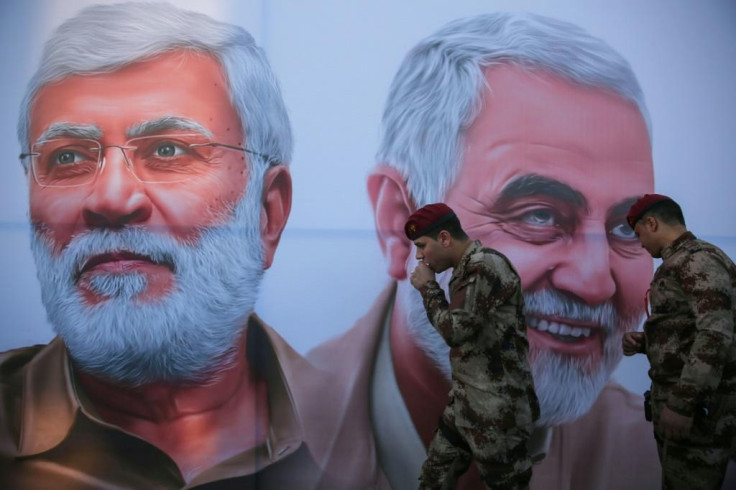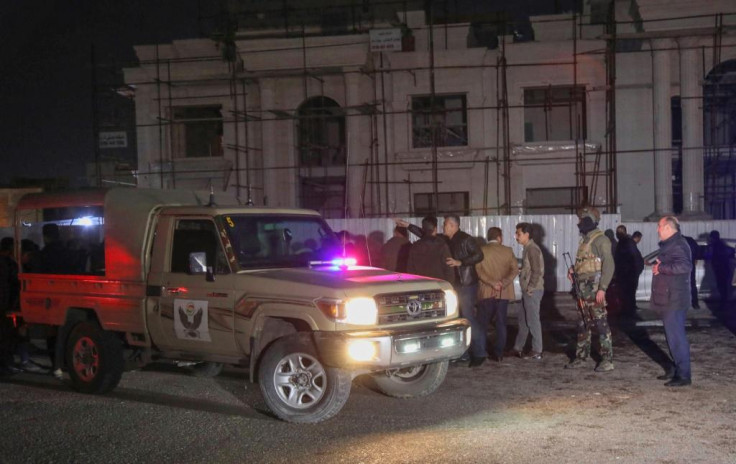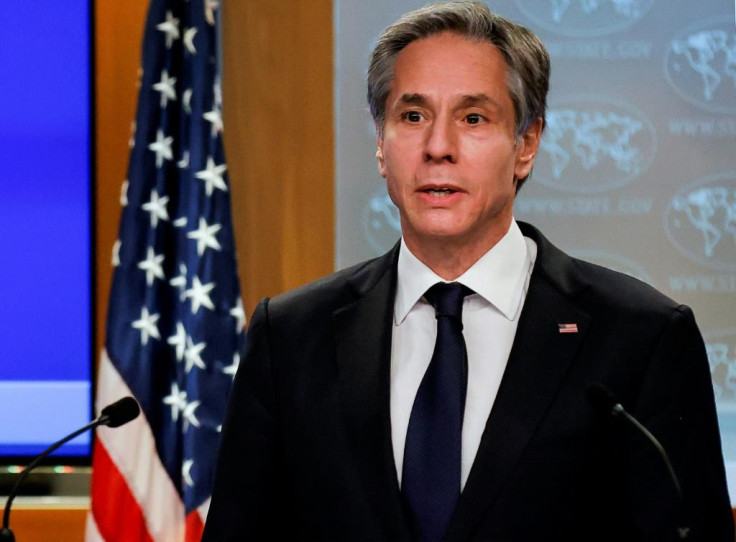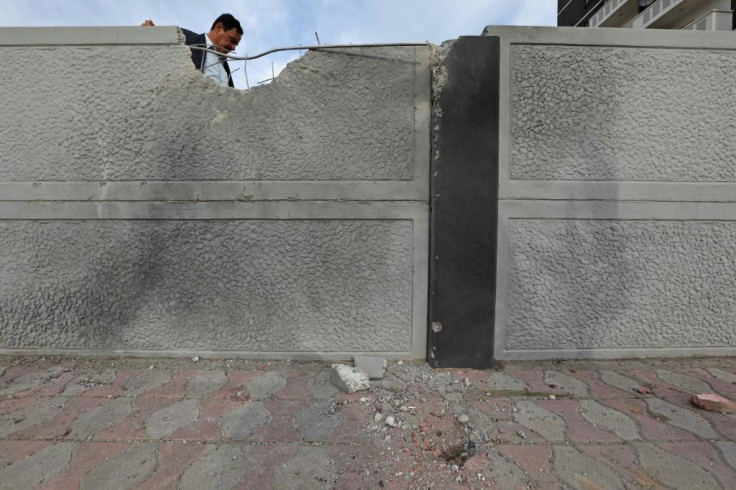UN slams deadly and 'reckless' Iraq rocket attack
Since Iraq declared victory over the Islamic State group in late 2017, the coalition presence has been reduced to fewer than 3,500 troops, of whom 2,500 are American.
The United Nations warned Tuesday that tensions in Iraq could escalate after a rocket attack killed a foreign contractor for the US military and wounded at least 14 others in the Kurdish regional capital Arbil.
The hail of more than a dozen rockets late Monday was the first attack in nearly two months targeting Western military or diplomatic installations in Iraq after a series of similar incidents blamed on pro-Iranian Shiite factions.
"Such heinous, reckless acts pose grave threats to stability," the UN top representative in Iraq, Jeanine Hennis-Plasschaert, wrote on Twitter, calling for "restraint" on all sides.
US Secretary of State Antony Blinken earlier said he was "outraged" and pledged American support in holding those responsible to account.

Iraqi Prime Minister Mustafa al-Kadhemi said that "the terrorist act that targeted the Kurdistan region aims to create chaos" and vowed to keep Iraq from becoming a "backyard" where regional conflicts play out.
The barrage of 107 mm rockets -- the same calibre used in recent attacks in Baghdad -- was fired Monday evening from around eight kilometres (five miles) west of Arbil.
They appeared to be aimed at a military complex inside the Arbil airport that hosts foreign troops deployed as part of a US-led coalition that has helped Iraq fight jihadists since 2014.
But they struck all over the city's northwest, including in residential districts where they wounded five civilians, the Arbil health directorate told AFP.

Coalition spokesman Wayne Marotto said three rockets hit Arbil airport and killed one civilian contractor, who he said was neither an Iraqi nor US national.
Another nine people were wounded, including eight civilian contractors and one US soldier, he said.

A shadowy group calling itself Awliyaa al-Dam (Guardians of Blood) claimed the attack and in a follow-up statement Tuesday vowed to keep targeting US forces in Iraq.
Over the past year, around a dozen previously unheard-of formations have claimed responsibility for rocket attacks on Western diplomatic and security installations.
US and Iraqi officials have told AFP they believe such factions to be "smokescreen" entities for more prominent pro-Iran groups including Kataeb Hezbollah and Asaib Ahl al-Haq.
Those factions are members of the Hashed al-Shaabi, a powerful state-sponsored armed network whose pro-Iran members often act independently of the government.
In a shift from the hawkish campaign against Iran under Donald Trump, President Joe Biden's administration -- which is looking to revive a nuclear deal with Tehran -- said it would not rush to judgment or action.

"Certainly, we've seen these attacks in the past. We've seen Iraqi militia and Iranian-backed militia in many cases be responsible," Blinken told National Public Radio on Tuesday.
"But to date, it's too early to know who's responsible for this one," he said.
State Department spokesman Ned Price said that such attacks increased with the previous administration's severing of diplomacy with Iran.
"The sad reality is that these kinds of rocket attacks have been more commonplace in recent years with the implementation of the so-called maximum pressure strategy," Price told reporters.
Iran condemned the attack and strongly denied it was involved.
The ruling Kurdistan Democratic Party (KDP) accused groups "under the guise of the Hashed al-Shaabi" of being behind the attack -- a bold claim given the Hashed's status as being part of Iraq's state security network.
The Kurdish region's premier Masrour Barzani pledged with his counterpart in Baghdad, Kadhemi, to launch a joint probe into the incident.
The rockets left small craters in the paved streets of Arbil and in plaster walls of buildings.
The attack "put our lives at risk," said resident Nariman Mohammad, 51. "I don't see any meaning to any of this. We're also people, and we want to live."
Arbil airport, after being closed to flights throughout the morning, resumed its normal schedule at noon (0900 GMT), a government spokesman told AFP.
Western military and diplomatic facilities have been targeted by dozens of rockets and roadside bombs since late 2019, but most attacks have been on Baghdad, not Arbil.
Following the deaths of US service members in two incidents in 2019 and 2020, Trump ordered several bombing raids on Kataeb Hezbollah.
Since Iraq declared victory over the Islamic State group in late 2017, the coalition presence has been reduced to fewer than 3,500 troops, of whom 2,500 are American.
Most are concentrated at the military complex at Arbil airport, a coalition official told AFP, adding that the phased drawdown had left "gaps" in the security structure.
Arbil has been targeted very rarely, although Iranian forces fired missiles at the same airport in January last year, a few days after Washington assassinated prominent Iranian general Qasem Soleimani at Baghdad airport.
Copyright AFP. All rights reserved.
This article is copyrighted by International Business Times, the business news leader





















